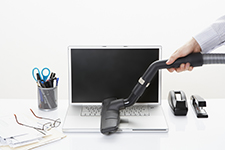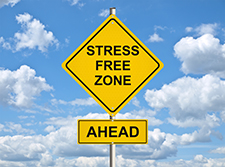 Heart disease affects all areas of your life, including your career. Since February is American Heart Month, it’s a great time to understand the risks of heart disease and learn ways you can stay healthy on the job.
Heart disease affects all areas of your life, including your career. Since February is American Heart Month, it’s a great time to understand the risks of heart disease and learn ways you can stay healthy on the job.
Cardiovascular disease and strokes are not only common, they’re costly. In fact, the American Heart Association (AHA) says that the total economic cost of heart disease five years ago was $320 billion. By 2030, those costs are expected to reach $918 billion.
According to recent research, heart patients spent an average of $4,400 on medical care for heart-related issues. Given that cost, it’s important to know how you can protect yourself from heart diease and help keep your friends, family, and co-workers healthy at the same time.
Get Screened
The AHA suggests regular screenings to make sure you’re health is in check. Health care is easily accessible, which makes it a great time to get screened for blood pressure, diabetes, cholesterol, and more. Contact your doctor to find out how you can schedule a screening.
Eat Right
We all know the importance of eating healthy. Proper nutrition helps cut your risk of cardiovascular disease, so be sure to incorporate fruits, vegetables, and whole grains into your meals. Instead of frying your food, consider grilling it when you can. Consider bringing your lunch to work and packing healthy food like fruits, light sandwiches, and juice.
Exercise Regularly
Exercising can be as easy as going for a walk around the block. When it comes to staying healthy, you just have to put forth the effort. It’s recommended that adults engage in moderate to intense exercise for at least 30 minutes, five days a week. But don’t give up if you can’t reach that goal. Small activities can add up quickly, like taking the stairs, walking the dog, or cleaning the house.
Cut Out Stress
One of the biggest factors in heart disease is stress. And let’s be honest, we’re all a bit stressed from time to time. While stress is natural, it can negatively effect your health. Consider adding a few techniques to your every day routine that may help cut down on the stress you put on your mind and body. Try meditation, relaxation exercises, or counseling to reduce stress and improve your health.
Learn to spot the events or activities that bring you stress and turn them around before you become overwhelmed. Know your limits, eliminate stressful relationships, and analyze your priorities before starting projects. If you feel overwhelemed at work, don’t hesitate to talk to your supervisor about your workload and make suggestions for how you can better accomplish your tasks without the extra stress.
How do you protect your heart health? Share your tips in the comments section below.
Movin’ On Up is brought to you by Express Employment Professionals.






